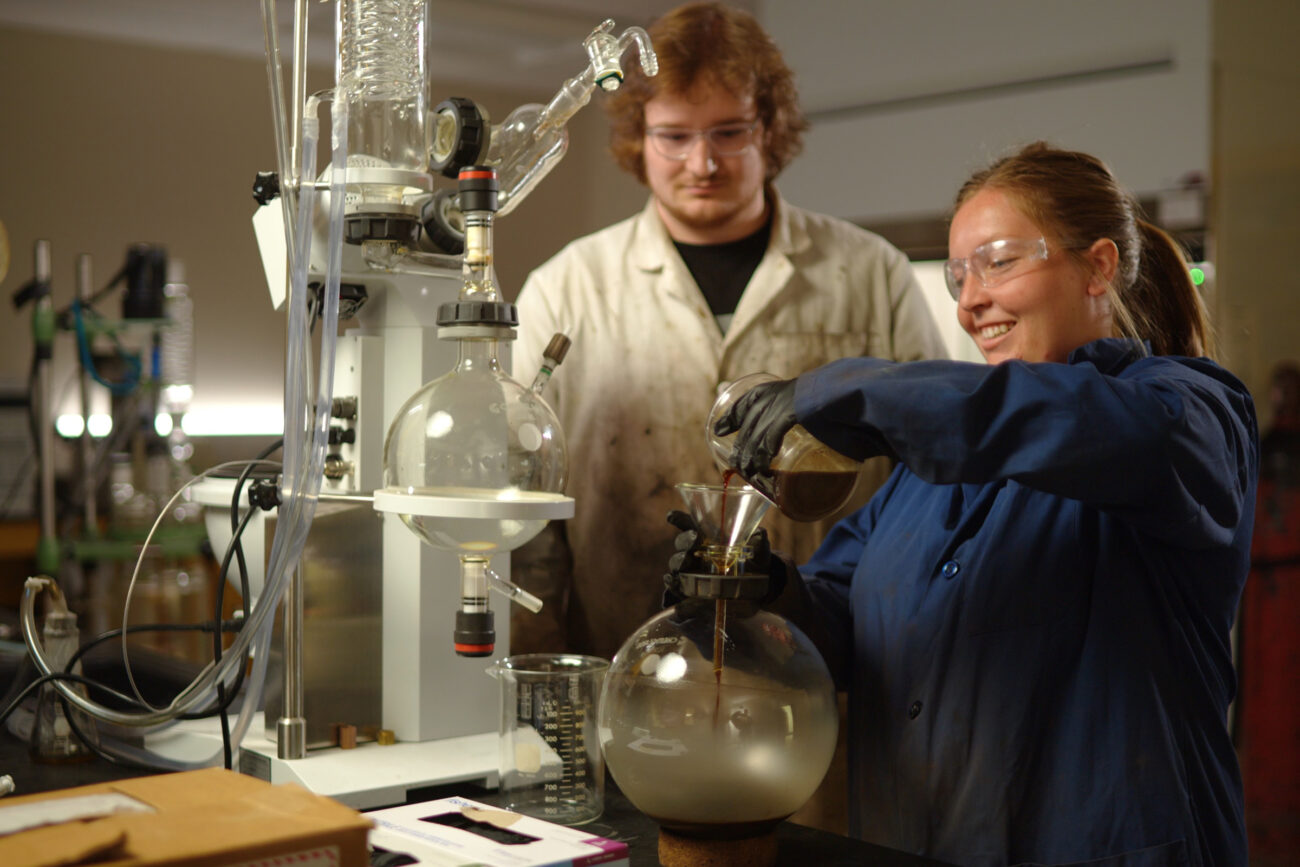Decarbonizing Aviation

USU Researchers Develop System to Convert Renewable Waste Byproducts into Fuel
By Taylor Emerson
In the U.S., millions of people use airline travel on an average day, and annually billions of pounds of cargo are flown into and out of airports. According to the Environmental Protection Agency, the fuel consumption to meet this need was nearly 15 billion gallons of jet fuel and aviation gasoline in 2021.
Despite ongoing electrification efforts in this sector, there’s clearly a need for aviation fuels in our society. However, beginning in 2021, the Federal Aviation Administration outlined a desire to achieve net-zero greenhouse gas emissions by 2050.
To help in both regards, Utah State University biological engineering endowed professor Foster Agblevor has researched a system to have a source of aviation fuels in a sustainable way. Agblevor and his students have engineered a process to convert biomasses like wood and grasses into biojet and sustainable aviation fuels. The system they’ve developed currently is designed to take in renewable waste by-products and residues from the forestry and agricultural industries — which can also help keep costs of the fuel production down.
Agblevor says the fuels produced through his system are fundamentally no different than typical petroleum-based products. By scaling this process up, the production of these fuels could ultimately aid in decarbonizing the aviation industry.
According to the FAA, sustainable aviation fuels “will be critical to the aviation industry’s ability to meet the net-zero emissions goal and they have the potential to slash emissions by up to 100%.”





